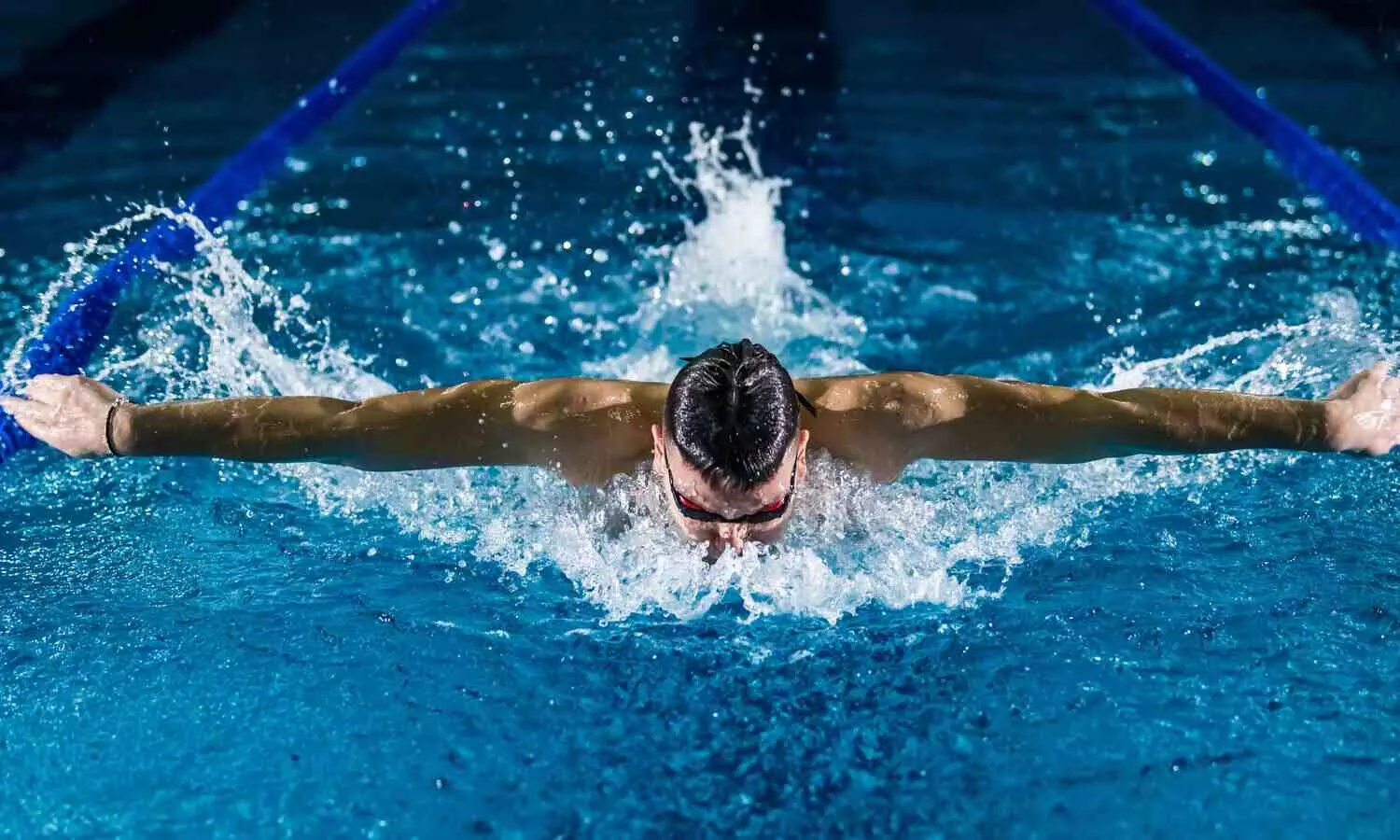Fitness & Wellness
Does swimming increase appetite and hamper weight loss goals?
Swimming is one of the most beneficial exercises for the body as it engages multiple muscle groups which include the arms, the legs, the core and the back.

Trying to stay motivated and dedicated on your fitness journey during summer months could prove to be quite difficult. It is often impossible to go for a run, walk or sweat it out in the gym, especially in a hot, humid, and tropical country like India.
As such, swimming seems to be an ideal activity that not only allows for a proper full body workout but also allows someone to beat the heat. Swimming can result in higher metabolism, help build endurance, muscle strength, and also provide cardiovascular fitness.
However, there is a concern in the fitness community regarding swimming as an ideal exercise for someone looking to lose weight.
Neha Sahaya, a wellness coach, took to Instagram to share why swimming is not the ideal exercise when it comes to weight loss. She said that swimming can increase appetite, thus making it hard to control calorie intake.
Her main point of contention was the fact that swimming makes someone want to eat more and consume more calories. “Swimming is a form of exercise that can increase appetite due to several factors,” wrote Sahaya. She wrote:
– Swimming in cold water can cause the body to use more energy to keep warm. This increase in energy expenditure can also lead to an increase in appetite.
– Swimming can also cause dehydration, especially if it is done in a heated pool or in warm weather. Dehydration can often be mistaken for hunger, which may lead to an increase in appetite.
– Swimming is a high-intensity exercise that can burn a significant number of calories. When the body burns more calories than it consumes, it triggers hunger signals to replenish the energy stores. Therefore, after a swim session, the body may require more energy and signal to the brain to consume more food, thus increasing appetite.
"Overall, swimming is a great form of exercise for staying healthy, but it is important to listen to your body and fuel it with the right nutrients to support your fitness goals,” she concluded.
However, Utsav Agarwal, who is a fitness coach with FITTR, has argued in favour of swimming being a highly beneficial exercise for weight loss and management.
He argued that swimming is a full body workout and engages various different muscle groups in the body which leads to a greater burning of calories. Swimming is also a low-impact exercise which means that it doesn’t put a lot of stress on the body joints and also the risk of injury is minimal, he added.
Because it is a cardiovascular exercise, swimming elevates the heart rate and also boosts metabolism. This can help the body to burn a significant amount of calories during a session and it also enhances endurance and stamina, he explained.
Another big advantage that swimming has over other activities is the fact that it is enjoyable and refreshing. This leads to a lot of people swimming regularly and consistently, which as we all know, is extremely crucial in the fitness journey, he said.
“While swimming can be an effective exercise for weight loss, it’s important to note that diet and nutrition also play a crucial role in achieving your weight loss goals. Creating a balanced diet and combining it with regular swimming sessions will optimise your weight loss efforts,” he further added.

